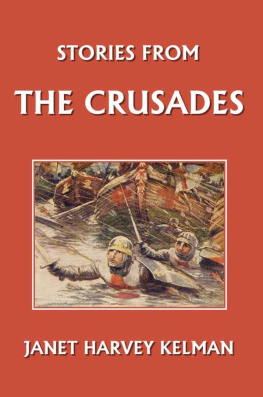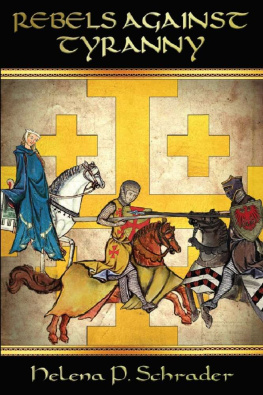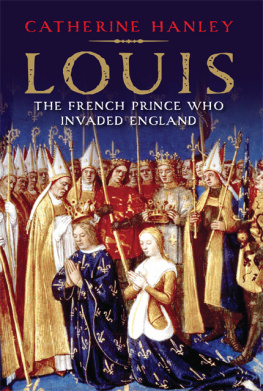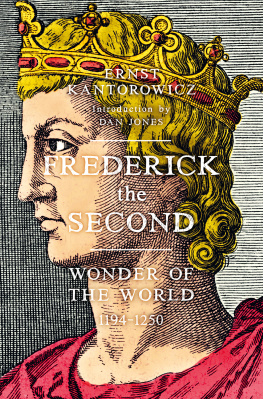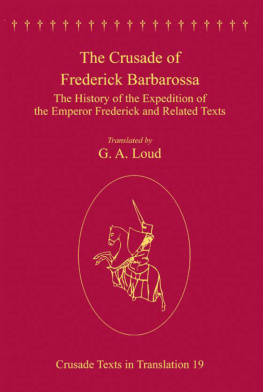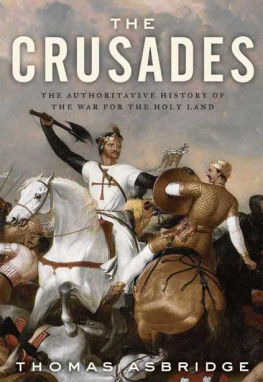Stories from the Crusades
by
Janet Harvey Kelman
Yesterday's Classics
Chapel Hill, North Carolina
Cover and Arrangement 2010 Yesterday's Classics, LLC
All rights reserved. No part of this book may be reproduced or retransmitted in any form or by any means without the written permission of the publisher.
This edition, first published in 2010 by Yesterday's Classics, an imprint of Yesterday's Classics, LLC, is an unabridged republication of the work originally published by T. C. & E. C. Jack in 1907. This title is available in a print edition (ISBN 978-1-59915-054-3).
Yesterday's Classics, LLC
PO Box 3418
Chapel Hill, NC 27515
Yesterday's Classics
Yesterday's Classics republishes classic books for children from the golden age of children's literature, the era from 1880 to 1920. Many of our titles are offered in high-quality paperback editions, with text cast in modern easy-to-read type for today's readers. The illustrations from the original volumes are included except in those few cases where the quality of the original images is too low to make their reproduction feasible. Unless specified otherwise, color illustrations in the original volumes are rendered in black and white in our print editions.
The Heroes of the Crusades
The stories in this book are of heroes who lived hundred of years ago. They caught sight of a beautiful dream and lived and died to make it come true.
Their eagerness swept along with them not only men who had never dreamed the dream and who did not know for what end they fought, but bad men also who only wished to get what they could for themselves.
The Crusades are long past, yet to-day there are men who see visions of good and who wish to bring them down to earth. With them are others who fight selfishly as did Bohemond and Baldwin long ago. But there are still men like Francis, who carry goodwill with them, and great knights like Tancred and like Louis, who live to fight for the poor and the weak.
Contents
CHAPTER I
How Peter Preached of Jerusalem
O NCE upon a time there was an ugly little boy called Peter, who lived in his father's castle in France. He was a restless boy, and liked always to do or to hear something new. His home was very quiet, for his father was a great fighter, and was often away at the wars for months at a time.
But though one day was very like another in Peter's life when he was young, he used to hear tales of pilgrimage and of battle that made him long to be free to go out into the world himself.
The country round his home and in the other northern lands near it was bare and and the towers and walls of the cities were gloomy, but the boy heard of other lands and other cities. He heard that in Byzantium, where the Greek Emperor had his palace, the houses were built of marble, and their walls were lined with gold, and that in the lands around it rich fruits and grain grew. He often heard of another city called Jerusalem, for many pilgrims went to it because it was at Jerusalem that Jesus Christ died. Hundreds of years before Peter was born, Helena, the mother of the Greek Emperor Constantine, found a cross which she thought must be the Cross on which Christ died. She was full of awe and wonder, and in order that all who served Christ might see the Cross, it was set up in Jerusalem on the spot where it was thought to have stood when Christ died upon it. Long after Constantine and his mother were dead, a king who did not serve Christ carried the Cross away from Jerusalem. The Emperor who then reigned in Greece fought with this king for ten years before he could subdue him. At last he won the cross again, and with it lands and gold, but these gave him far less joy than the thought that the cross would again stand in Jerusalem. He kept part of it in his city of Byzantium; with the rest he went to Jerusalem. He was a great man and a proud man, but he was humble when he thought of the cross and of what it told of the death of Christ. So he took off his beautiful clothes, and with bare feet and wearing a plain robe he carried the cross up the street of Jerusalem, and set it once more within the church that had been built where Christ died.
When Peter was young, hundreds of pilgrims went to Jerusalem to worship at the foot of this cross. They did so for many reasons. Some did it because they loved the thought of Christ and wished to stand where He had stood, and to see the land in which He had lived. Others went because they thought it would make other people think them very good. They hoped to be great people when they came back to their homes again. But the largest number went because the Pope and the priests told them that those who went in poverty to the Holy City would be forgiven for all the wrong things they had done. Many a man who was very unhappy because he had killed some one by stealth, gave up all that he had and went with nothing except a staff to visit the cross.
These pilgrims were often very cruelly treated in Jerusalem, for men called Saracens who did not serve Christ lived and ruled there, and they made each pilgrim give them money before they would allow him into the city. They are sometimes called "Moslems," and they were followers of a prophet named Mahomet. They were cruel to the Christians who lived in Jerusalem, as well as to the pilgrims who came to it.
Once, when Hakem, who was called "the mad Sultan," ruled in Jerusalem, the streets of the city surged with an angry throng. The white robes of the soldiers of Hakem flashed out amongst the bright colours that were worn by men of other Moslem races. Every face was full of scorn and anger. Harsh voices cursed those who served Christ. Jews hid in corners and alleys that they might not suffer with the Christians, for them too the Moslems hated.
The Moslems call their churches mosques, and the reason of their great anger on this day was that they had found a dead dog lying in a mosque. They thought that this had done such harm to their mosque that they could not pray in it till they had made it pure again, and they were sure that a Christian had thrown the dog's body there in order to annoy them. The news spread through the town, and each moment the crowd grew larger and more fierce.
"Let us fall on the Christian dogs!" they shouted. "Let us kill them without mercy!" "Who are they that they should soil our temple?"
The Christians had gathered into one place in sorrow and in fear. They all wore clothes of dull dingy shades, because they were not allowed to wear beautiful colours nor white robes like Hakem's soldiers. Each of them wore a leather thong to show that the Moslems ruled over him. Their hearts were more gloomy than their robes. If they were all killed, the Christian Church would have no one left in Jerusalem. They waited in terror. But the noise they heard was not what they had feared. A clear voice rang out. The man who spoke was one of themselves. His name was Olindo.
"Nothing could be a greater evil," he said, "than that the Church should perish. I will die for you and for our faith. Do not forget me nor my people."
The others burst into tears, but though they were sad to think of Olindo's death, no one tried to stay him. He passed swiftly out from them, and met the Moslem leaders as they hurried on to kill the Christians.
"I alone am guilty of this deed," said Olindo; and he had not time to say more, for he fell dead in the street, killed by the swords of those nearest to him.
At that time those who were called Christians were quarrelling with each other. There were two Churches. One was the Greek Church, the other was the Church of Rome. The Popes, who reigned in Rome, always wished to make the Greek Church obey them, so that there might be only one Christian Church. And when Peter lived it seemed that perhaps this dream of the Popes might come true. A fierce race of men called Turks had swept westward from the Great Wall of China. Everything had fallen before them except the faith of the Prophet whom the Moslems followed. It did not fall, because, instead of trying to fight it, the Turks took it for their own. It suited them well, because it taught that whoever died fighting for it, against those who did not obey Mahomet, would go straight to heaven. So instead of making slaves of the Moslems whom they had defeated, the Turks joined their armies to their own and led them against the Empire of Greece. That was why the Pope who lived then thought he might be able to unite Rome and Greece once more. Greece asked Rome to help her against the Turks, and Rome hoped that if she helped her so, then Greece would be willing to do what she wished afterwards.

